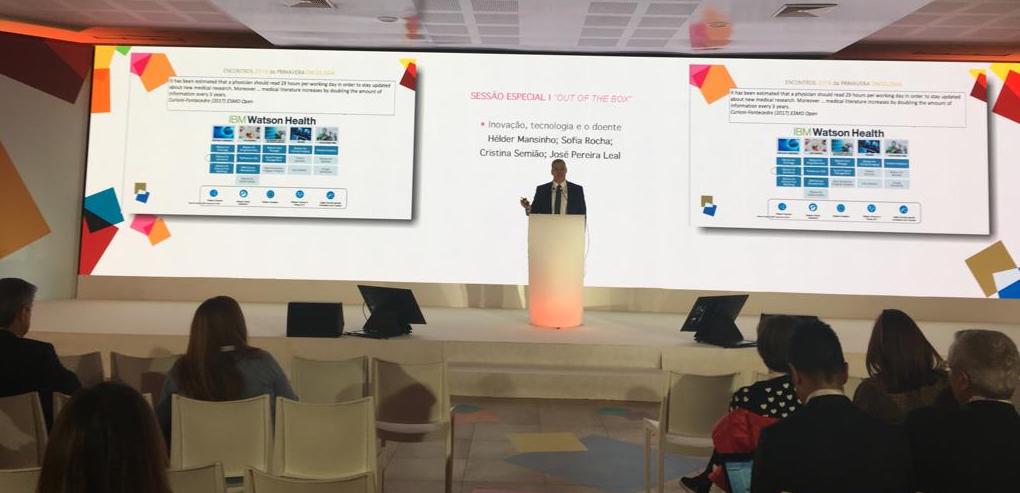If there is one filed of Medicine where AI is already showing greatest impact is Oncology. Last Thursday I was at the Encontros da Primavera, in Évora, discussing the challenges of big data and examples of AI applications in Oncology, sharing the stage with Sofia Rocha.

We had a lively discussion with an audience of clinicians who resist the idea that AI will substitute them in the many daily decisions they face today in managing their patients.
There is also a justified concern regarding the dehumanisation of medicine. We need to redefine the role of the human oncologist when the AI oncologist is better at deciding how a cancer patient should be treated.

Patients are more than data, and not all aspects of patient data are usable data yet. AI technologists however tend to resist this fact, aiming for objective results rather than the results that the patient desires. For example, as was discussed in another session of Innovation in Oncology, patients may desire quality of life instead of longer survival – this may not be obvious and only be evidenced by a continued interaction between oncologist and patient – is this the real future role of the Oncologist?
